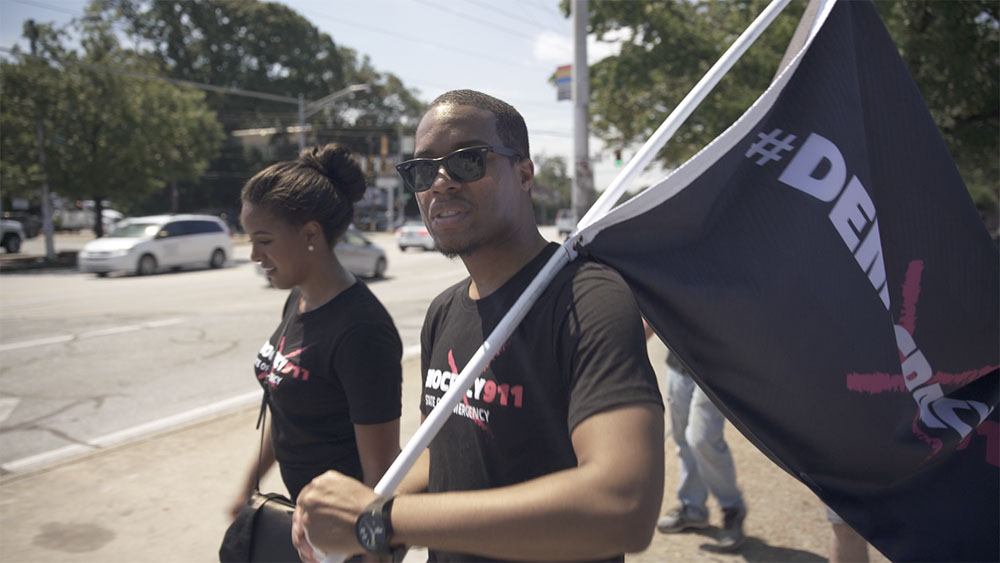Civil rights hero and Congressman John Lewis recently made headlines when he said he’s less hopeful today than he was during the height of the civil rights movement — when he was beaten and bloodied, marching in Selma, Alabama. That same month, a Washington Post headline, citing a Brennan Center report, read: “Almost 16 million voters were removed from the rolls. We should be alarmed.”
Then, just days before we celebrated the 243rd birthday of our democracy last month, a narrow majority of the Supreme Court ostensibly gave their blessing for partisans to cut voters out and to rig elections (the fourth lethal blow from the Supreme Court to our democracy, following its 2010 Citizens United, 2013 Shelby, and 2018 Husted decisions). And yet, these election-rigging-breaches of democracy weren’t once mentioned in any presidential debates — or from the White House.
Who can blame John Lewis for his comments — or us, as debate viewers and voters (with historically low trust in government) — for feeling this way?
In the 1950s and 1960s, our Black grandmothers and grandfathers, including my own, put their lives on the line to fight for voting rights. Their crowning achievement was the landmark Voting Rights Act of 1965, eliminating Jim Crow laws that kept African Americans from the polls.
Now, decades later, the votes of their children and grandchildren are being suppressed, purged and diluted.
Since 2008, 15,000 polling places have been closed nationwide. Last year, over 200 officials in 33 states reported that they need to replace their voting machines by 2020, but lack the funding to do so, leaving these old machines vulnerable to even more breakdowns, malfunctions and hacking.
Add to this foreign threats to our elections, a broken two-party duopoly, and blows to voting rights dealt by the Supreme Court, including the gutting of the Voting Rights Act in 2013, which threw open the floodgates of voter suppression. Within hours of the decision, Texas announced a strict voter ID law — and 16 states followed suit.
In 2018, Georgia — the very same state where my grandmother became one of the first Black cashiers in Savannah — became ground zero for anti-corruption efforts after statewide voter suppression and election purging shaped the gubernatorial race.
All the while, members of Congress are spending up to 70% of their time fundraising from a handful of billionaires and special interests, just to pay for their next election.
What we are seeing is unprecedented. We are now the first generation of Americans to see our country become less democratic. Our democracy is now in a state of emergency. But don’t just take my word for it. The Economist Intelligence Unit’s Democracy Index reports that the U.S. is no longer a “full democracy,” and similar conclusions have been reached by Freedom House, The Electoral Integrity Project, Transparency International and even the bipartisan Democracy Project — a trilateral project of the George W. Bush Institute, Freedom House and the Penn Biden Center.
And, in light of last year’s United Nations IPCC report on global warming, we now face an existential deadline. Do we still have hope in our democracy to heed the call of public interest to face the challenges of our time, or do we continue to allow corrupt practices to erode our system to the point of no return?
As President Teddy Roosevelt once warned, "If we condone political theft, if we do not resent the kinds of wrong and injustice that injuriously affect the whole nation, not merely our democratic form of government but our civilization itself cannot endure."
Congress and presidential candidates need to show voters where they stand. Over 80% of American voters want to see anti-corruption and pro-democracy reforms enacted at the federal level. Either they are against corruption, or they are for it. Either they stand by the words, “We, the People,” or they don’t.
I am sounding the alarm — dialing 911 on our democracy — and asking Americans of all backgrounds, of all political ideologies to join me in person or in solidarity as I begin my walk on the 54th anniversary of the 1965 Voting Rights Act — from Atlanta, Georgia to Washington, DC.
We will start at the final resting place of Dr. King and in the city where the infamous 2018 election purges and voter suppression made the state ground zero in our fight. We will walk for just under two months, more than 600 miles, an action commensurate with the scale and severity of this crisis, and when we arrive, we will sit on the steps of the United States Capitol until our demands for democracy — protecting our right to vote, making elections secure and competitive and ending political corruption — are heard.
We must ask ourselves: what will our excuse be for the next generation if we do not repair our broken democracy? Or, will we, like our grandparents before us, lay our lives on the line for the principles this country was built upon?
In the words of Marian Wright Edelman, “A lot of people are waiting for Martin Luther King or Mahatma Gandhi to come back — but they are gone. We are it. It is up to us. It is up to you.”
____
Renaldo Pearson, the Director for External Affairs at RepresentUs, embarked Aug. 6 on the 600-mile, 50-day walk, ‘Democracy911 Walk’ from Atlanta to Washington D.C. to fight for voting rights and anti-corruption reform. Prior to leading Democracy Spring, he served as the youngest college administrator and Social Engineer-in-Residence at Harvard University.
